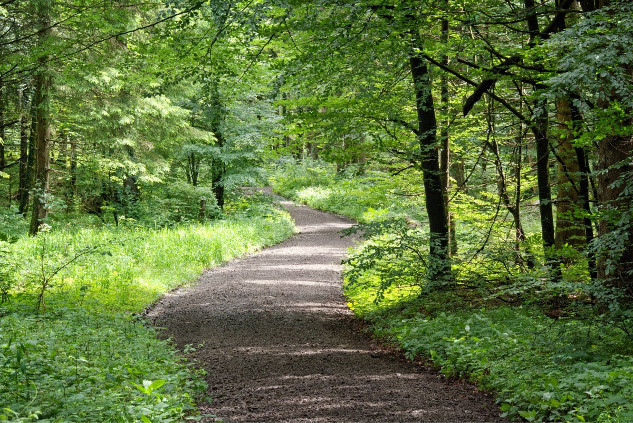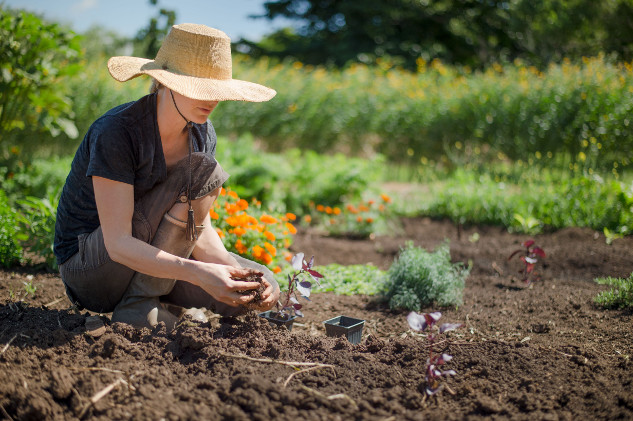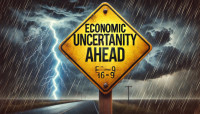
Article Summary:
In today's chaotic world, staying grounded and maintaining mental well-being is crucial. This article explores the importance of balancing awareness of personal and global challenges with strategies to stay calm and centered. It discusses the benefits of mindfulness, exercise, strong social connections, and nature's healing power. We can navigate these turbulent times with resilience and optimism by actively engaging with our communities and fostering human connections.
Finding Calm Amidst Chaos: Tips for Mental Well-Being
In today's world, negativity surrounds us at every turn. From personal struggles to global crises, keeping our heads above water can be overwhelming. However, it's essential not to bury our heads in the sand but to remain aware of our challenges. At the same time, we need to find ways to calm ourselves and stay grounded. This balance is crucial for maintaining our mental and emotional well-being.
These personal battles are not isolated incidents. They are part of a larger web of challenges that we all face. Health issues, financial stress, and relationship struggles are not unique to any one individual. They are shared experiences that connect us to our humanity. How often do you worry about your health or the health of a loved one, knowing that many others are in the same boat?
Financial stress is a common issue that many of us face. Job insecurity, inflation, debt, and the daunting task of saving for retirement can cause constant anxiety. You are not alone in these struggles. Many of us are also juggling family dynamics. Relationship struggles, parenting challenges, and caring for aging parents can be incredibly demanding.
Isolation and loneliness have become more prevalent, especially after the pandemic. While social distancing measures are necessary for some, they can make us feel disconnected. It's okay to find it more challenging to maintain connections with friends and family. Your feelings are valid and shared by many.
Balancing work and personal life is a struggle many face daily. The stress of juggling work responsibilities with personal obligations can leave us feeling stretched thin. Additionally, the constant distraction from technology and social media contributes to our sense of digital overload. How often do we find ourselves glued to our phones or computer screens, feeling more disconnected than ever?
Community and Global Challenges
On a larger scale, we face numerous community and global challenges. Political polarization is increasing division and conflict within societies. Economic and wealth inequality is growing, with the gap between the wealthy and the poor widening daily. Climate change poses a significant threat, with extreme weather events, rising sea levels, and biodiversity loss becoming more frequent.
Global health crises, such as pandemics and the spread of infectious diseases, have shown us how interconnected and vulnerable we are. Social injustice, including systemic racism and gender inequality, remains pervasive. Ongoing conflicts and wars continue to cause devastation in various regions, and the threat of larger-scale wars looms over us.
Environmental degradation, pollution, deforestation, and the depletion of natural resources are pressing concerns. Technological disruption, job displacement due to automation and AI, privacy concerns, and cyber threats add to the uncertainty of our times. The erosion of trust in institutions, media, and governance has left many disillusioned and mistrustful.
Finding Calm Amidst the Chaos
Despite these overwhelming challenges, it's crucial to prioritize our personal well-being. Practicing mindfulness and meditation, engaging in physical exercise, ensuring adequate sleep, and maintaining strong social connections are all essential for our resilience. These self-care practices help us navigate our personal challenges and provide a solid foundation to contribute to positive change in our communities and the world.
Physical exercise is another powerful tool. Regular exercise boosts mood and improves physical health, providing a natural outlet for stress relief. Coupled with a healthy diet, our bodies and minds are better equipped to handle challenges.
Adequate sleep is essential for our overall well-being. Ensuring we get enough quality sleep helps us stay resilient and ready to face the day's demands. Maintaining strong social connections with family and friends is crucial for combating loneliness and providing emotional support.

Engaging in hobbies and interests that bring joy and relaxation can be incredibly therapeutic. Whether reading, painting, gardening, or playing music, these activities provide a much-needed escape from daily stress.
Seeking professional help, such as therapy or counseling, can provide valuable support for mental health struggles. It's essential to prioritize time management, setting boundaries, and maintaining a healthy work-life balance. Regular breaks from technology and engaging in digital detoxes can reduce digital overload and foster a sense of presence at the moment.
It's not enough to be aware of the challenges we face. We must also actively engage with our communities and the world to foster a sense of collective resilience. Civic engagement, participating in community activities, and involvement in local governance are not just options but opportunities to make a significant impact. How often do we take the time to get involved in our communities and make our voices heard, knowing that our actions can bring about meaningful change?
Education and awareness are powerful tools for addressing communal and global challenges. Staying informed about issues and spreading awareness to others can create a ripple effect of positive change. Advocacy and activism, supporting causes and organizations that work towards social justice and environmental protection, can bring about meaningful progress.
Adopting sustainable living practices, such as reducing waste, conserving energy, and supporting eco-friendly products, helps reduce our personal impact on the environment. Building and participating in support networks, fostering dialogue, and promoting understanding are crucial for addressing political and social conflicts.
Preparing for emergencies and fostering resilience through resilience planning can help communities navigate crises more effectively. Volunteering time and skills to help others benefits the community and provides a sense of purpose and fulfillment.
The Healing Power of Nature
One of the most powerful ways to calm ourselves and find balance is through nature. Spending time outdoors, whether walking in the park, hiking in the mountains, or simply sitting by a lake, can profoundly affect our mental and emotional well-being. Nature has a way of grounding us, reminding us of the beauty and simplicity of life.
How often do we take the time to immerse ourselves in nature? In our fast-paced, technology-driven world, it's easy to forget nature's healing power. Nature provides a sanctuary to disconnect from the chaos and reconnect with ourselves.
Balancing Awareness with Calmness
While finding ways to calm ourselves is essential, we must remain engaged. Too many people withdraw, convinced they cannot make a difference. Yet, disengagement only perpetuates the status quo. Every individual has the potential to contribute to positive change, but it requires a willingness to participate actively.
Voting is one of the simplest yet most powerful ways to stay engaged. Our democratic systems rely on participation to function effectively. By casting our votes, we help shape the policies and leadership that govern our lives. How often have you heard someone say, "My vote doesn't matter"? In reality, every vote counts. In close elections, a single vote can make a difference.
Beyond voting, staying informed and participating in local government meetings, community boards, and school committees can amplify our impact. Grassroots movements often start with a few dedicated individuals willing to stand up and take action. Can you be one of those individuals who spark change in your community?
It's essential to stay informed about our challenges. Still, balancing this awareness with strategies to calm ourselves is equally important. Limiting excessive news consumption, especially negative news, can help reduce anxiety. Focusing on solutions and initiatives that address issues rather than just the problems themselves fosters a sense of empowerment.
Practicing gratitude and regularly acknowledging and appreciating the positive aspects of life can shift our perspective and boost our mood. Mindful breathing and setting realistic goals help us stay grounded and focused. Seeking inspiration from positive individuals and communities making a positive impact reminds us that change is possible.
Connecting and Finding Purpose
In these trying times, human connection and a sense of purpose are more important than ever. How can we strengthen our connections with others? How can we find purpose in our daily lives? We can navigate our challenges with resilience and optimism by asking these questions and seeking answers.
Spiritual practices, whether religious or secular, can provide comfort and a sense of belonging. Whether through prayer, meditation, or community gatherings, these practices can help us find meaning and peace.
Navigating turbulent times requires a delicate balance of awareness and calmness. We can maintain a realistic yet hopeful perspective by acknowledging our personal, communal, and global challenges and actively seeking ways to address and mitigate them.
It's about finding the right strategies for our well-being, engaging with our communities, and reconnecting with nature. It's about fostering human connections and finding purpose in our lives. We can navigate these challenging times with resilience, optimism, and balance. Remember that our actions and engagement can light the way for a better future, even in the darkest times.
About the Author
 Robert Jennings is the co-publisher of InnerSelf.com, a platform dedicated to empowering individuals and fostering a more connected, equitable world. A veteran of the U.S. Marine Corps and the U.S. Army, Robert draws on his diverse life experiences, from working in real estate and construction to building InnerSelf with his wife, Marie T. Russell, to bring a practical, grounded perspective to life’s challenges. Founded in 1996, InnerSelf.com shares insights to help people make informed, meaningful choices for themselves and the planet. More than 30 years later, InnerSelf continues to inspire clarity and empowerment.
Robert Jennings is the co-publisher of InnerSelf.com, a platform dedicated to empowering individuals and fostering a more connected, equitable world. A veteran of the U.S. Marine Corps and the U.S. Army, Robert draws on his diverse life experiences, from working in real estate and construction to building InnerSelf with his wife, Marie T. Russell, to bring a practical, grounded perspective to life’s challenges. Founded in 1996, InnerSelf.com shares insights to help people make informed, meaningful choices for themselves and the planet. More than 30 years later, InnerSelf continues to inspire clarity and empowerment.
Creative Commons 4.0
This article is licensed under a Creative Commons Attribution-Share Alike 4.0 License. Attribute the author Robert Jennings, InnerSelf.com. Link back to the article This article originally appeared on InnerSelf.com
books_attitude








